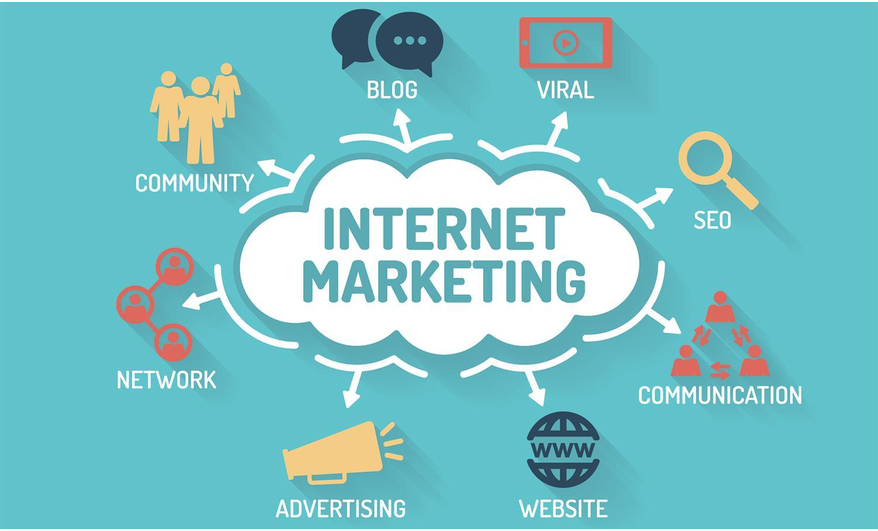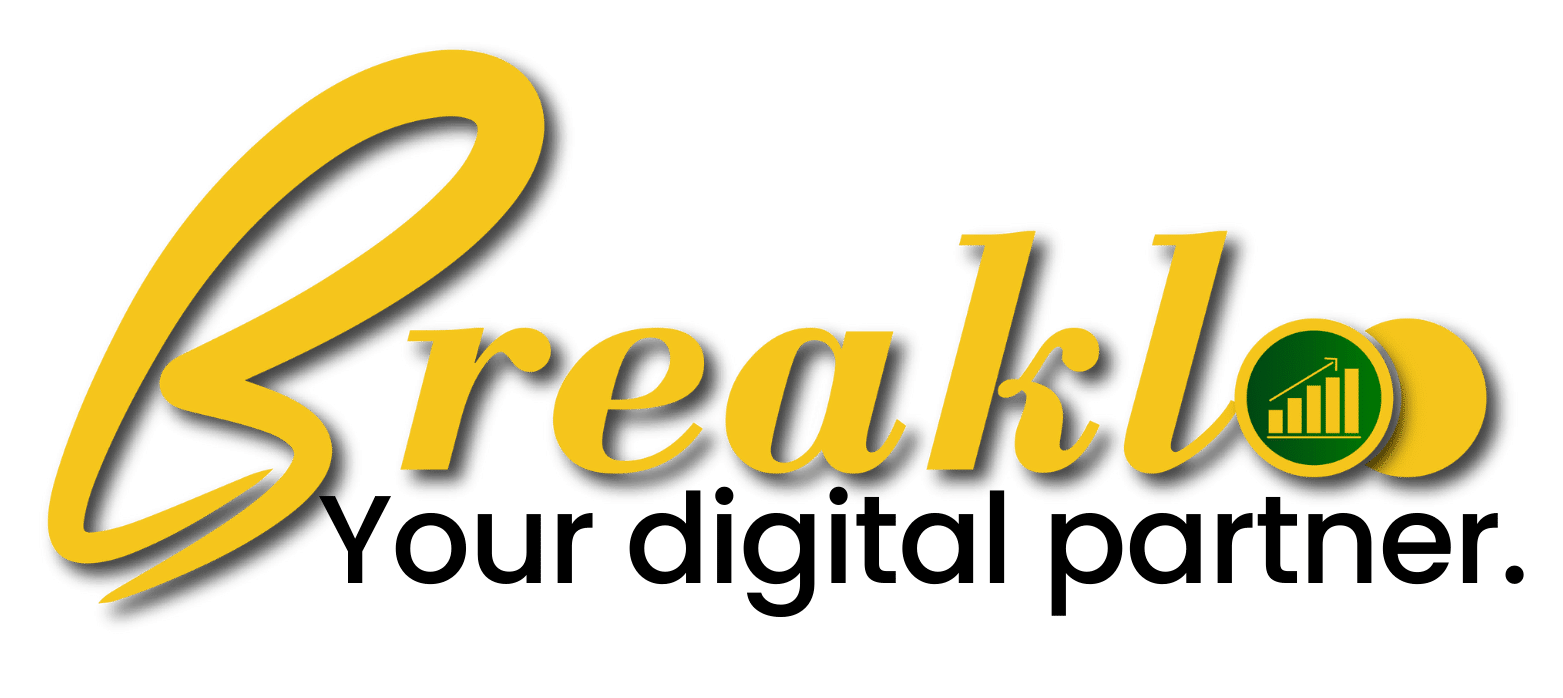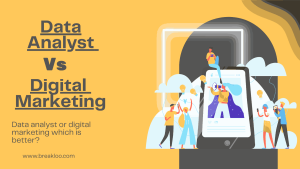Introduction
In today’s fast-paced digital world, the success of any business hinges on its ability to effectively leverage online marketing strategies. The right approach to online website marketing can transform a business from being just another entity in the market to a dominant player in its industry. With increasing competition, the importance of an optimized and well-structured digital marketing plan has never been more pronounced. Whether you’re a small business or a large corporation, mastering the strategies that drive success in the online realm is essential.
This blog will delve deep into online website marketing strategy, exploring the essential digital marketing techniques, tips, and performance strategies that every business should adopt. We’ll break down the most effective web marketing strategies, internet marketing strategies, and how to craft a marketing plan for digital marketing. Along the way, we’ll discuss recent reviews and updates to ensure your strategy is modern and adaptable.
What is Online Website Marketing Strategy?
An online website marketing strategy refers to the plans, tools, and techniques used to attract, engage, and convert website visitors into loyal customers. The strategy includes a mix of different marketing tactics such as content marketing, SEO, paid advertising, email marketing, social media marketing, and much more. The goal of an online website marketing strategy is to increase a business’s visibility, build brand awareness, drive traffic, and ultimately generate revenue.
Today, businesses cannot afford to ignore the power of digital marketing. With the world constantly evolving, having an online presence is not just an option; it’s a necessity. When creating an online marketing strategy, it is essential to consider key aspects such as targeting the right audience, crafting effective content, utilizing search engine optimization (SEO), and tracking performance.
Stratégie Digital Marketing: The French Touch to Digital Marketing
A stratégie digital marketing (digital marketing strategy in French) is crucial for companies targeting international markets. For instance, in Europe, having a well-defined strategy tailored to the French audience can help brands navigate cultural nuances and market preferences. This strategy could involve targeting specific search terms in French, localizing content, and running campaigns on platforms that are popular in France, such as Google, Facebook, and Instagram.
Moreover, having a digital marketing plan specific to different cultural markets helps businesses build more robust connections and a deeper understanding of customer needs. The key is not to use a one-size-fits-all approach but to adapt your digital marketing techniques based on the geographic, cultural, and demographic differences in your target audience.
Internet Marketing Strategies: The Foundation of Online Growth
Internet marketing strategies refer to a broad range of tactics that help businesses grow their online presence. These strategies combine various elements such as search engine marketing (SEM), social media marketing, and content marketing. The ultimate goal of internet marketing strategies is to generate qualified leads, increase conversion rates, and improve ROI (return on investment).
An effective internet marketing strategy typically includes a mix of the following components:
-
Search Engine Optimization (SEO): Improving your website’s ranking on search engines such as Google and Bing.
-
Pay-Per-Click (PPC) Advertising: Running paid ads on search engines, social media platforms, or other websites.
-
Content Marketing: Developing high-quality, relevant content that engages and educates your target audience.
-
Email Marketing: Sending targeted emails to nurture leads and encourage conversions.
When combined, these strategies help a business position itself as an industry leader and drive valuable traffic to its website.

Web Marketing Techniques: Unlocking the Power of the Web
Web marketing techniques involve various online tactics designed to promote a website, attract traffic, and generate conversions. These techniques range from basic SEO strategies to advanced techniques like video marketing and retargeting ads.
Some of the top web marketing techniques that businesses can leverage include:
-
Search Engine Optimization (SEO): Optimizing your website to rank higher in search engine results pages (SERPs).
-
Social Media Marketing: Building a strong social media presence on platforms like Instagram, Facebook, and Twitter to engage your audience and drive traffic.
-
Affiliate Marketing: Partnering with influencers or other businesses to promote your products and services to a broader audience.
-
Retargeting Ads: Showing ads to visitors who previously visited your website but didn’t convert.
These techniques allow businesses to cast a wider net and tap into various segments of their target market.
Website Marketing Techniques: Tailoring Strategies for Online Success
Every website needs a website marketing strategy to ensure it reaches its full potential. A website marketing strategy includes tactics specifically designed to promote the website itself. This can involve optimizing user experience (UX), making the website more navigable, and ensuring it is mobile-friendly.
Some key website marketing techniques include:
-
Conversion Rate Optimization (CRO): Making sure that your website turns visitors into customers.
-
SEO and Content Strategy: Combining high-quality content and optimized pages to help your website rank better on search engines.
-
Landing Page Optimization: Creating targeted landing pages designed to capture visitor information and convert them into leads.
-
Email List Building: Gathering email addresses through lead magnets like ebooks, whitepapers, or free trials.
When implemented correctly, these techniques lead to an improved website user experience and a higher conversion rate.
Digital Marketing Plan: Laying the Groundwork for Success
A solid digital marketing plan is the backbone of any successful online marketing campaign. It should outline the key strategies, objectives, and tools needed to achieve your marketing goals.
Here’s how to create a digital marketing plan:
-
Set clear goals: What do you want to achieve through digital marketing? Whether it’s increasing traffic, boosting sales, or building brand awareness, having clear goals is critical.
-
Identify your target audience: Who are you trying to reach? Understand the demographics, behaviors, and preferences of your ideal customer.
-
Choose the right channels: Whether it’s social media, email marketing, or PPC, decide which channels are most effective for reaching your target audience.
-
Develop content: Craft engaging content tailored to your audience’s interests and needs.
-
Track performance: Use analytics tools like Google Analytics to track the performance of your digital marketing campaigns.
A digital marketing plan is essential to align all your marketing efforts and measure their effectiveness over time.
Marketing Plan for Digital Marketing: The Blueprint to Success
A marketing plan for digital marketing is similar to a traditional marketing plan but is focused exclusively on online channels. It involves defining your goals, strategies, and tactics to ensure you’re reaching your audience effectively through digital means.
Key components of a digital marketing marketing plan include:
-
Budgeting: Determine how much you want to invest in digital marketing efforts.
-
Target Market Research: Identify your audience’s demographics, buying behavior, and preferences.
-
Key Performance Indicators (KPIs): Set measurable goals like website traffic, lead generation, or sales to evaluate the success of your campaigns.
-
Content Calendar: Develop a content calendar that outlines when and what content will be published across various digital platforms.
A solid marketing plan will provide you with the roadmap to ensure you’re driving real results and ROI.
Tips Marketing Digital: Insights for Better Results
When it comes to marketing digital, there are numerous tips and best practices that can improve your efforts. Here are a few helpful tips marketing digital:
-
Focus on Customer Experience: Ensure that your website is easy to navigate and offers a seamless experience across all devices.
-
Use Visual Content: Visual content such as images, videos, and infographics can help increase engagement and improve retention.
-
Leverage Automation: Automate repetitive tasks like email marketing and social media posts to save time and improve efficiency.
-
Experiment with A/B Testing: Test different strategies, landing pages, and emails to see what works best for your audience.
By following these digital marketing tips, businesses can create a more impactful and effective online marketing strategy.
Performance Marketing Strategy: Driving Results That Matter
Performance marketing strategy focuses on measurable results and outcomes, such as clicks, conversions, and sales. In performance marketing, you only pay for results, which ensures that your marketing budget is being used effectively.
Performance marketing typically includes:
-
PPC (Pay-Per-Click) Advertising
-
Affiliate Marketing
-
Cost-Per-Action (CPA) Campaigns
By adopting a performance marketing strategy, businesses can ensure their marketing dollars are spent on high-performing campaigns that deliver results.
Business Website Marketing: Promoting Your Business Online
When it comes to business website marketing, the goal is to increase online visibility, drive traffic, and convert that traffic into customers. A solid business website marketing strategy includes:
-
Local SEO: Optimizing your website to rank well in local search results, especially if you have a brick-and-mortar store.
-
Google My Business Optimization: Creating and optimizing your business listing on Google.
-
Customer Reviews: Encouraging happy customers to leave reviews that boost credibility and rankings.
By utilizing these techniques, businesses can ensure their website is actively contributing to their overall growth.
The Role of User Experience (UX) in Website Marketing
User experience (UX) plays a crucial role in website marketing. Websites with an intuitive, user-friendly interface and seamless navigation see higher engagement rates and better conversion rates. By focusing on UX design, businesses can ensure their customers have a positive experience on their site, which directly impacts SEO rankings and overall success.
-
Optimizing Page Load Speed: Slow loading times can lead to high bounce rates, affecting user engagement and conversion.
-
Responsive Design: With mobile devices accounting for a significant portion of online traffic, ensuring your website is mobile-friendly is essential.
The Power of Video Marketing in Website Promotion
Video marketing has proven to be one of the most effective content types for driving website traffic and engagement. Platforms like YouTube, Instagram, and TikTok have made video content a key part of many digital strategies.
-
Explainer Videos: Using videos to explain your products or services can increase engagement and reduce bounce rates.
-
Live Streaming: Live streaming events, product launches, or behind-the-scenes content can also foster a connection with your audience and increase brand visibility.
How to Leverage Influencer Marketing for Website Growth
Influencer marketing has become an integral part of many online marketing campaigns. By collaborating with influencers who share your target audience, you can increase brand awareness and drive targeted traffic to your website.
-
Choosing the Right Influencers: Partnering with influencers whose followers align with your target audience can result in higher engagement and better ROI.
-
Micro-Influencers: Smaller influencers with highly engaged, niche audiences can sometimes provide more impactful results than big-name influencers.
Harnessing the Power of Local SEO for Regional Website Marketing
Local SEO is essential for businesses with physical locations or regional target audiences. By optimizing your website for local search terms, you increase your chances of being found by customers in your geographic area.
-
Google My Business Optimization: Creating and optimizing your Google My Business listing can significantly boost local SEO efforts.
-
Local Reviews and Citations: Encouraging customers to leave positive reviews and ensuring your business is listed on local directories can help increase your visibility in local search results.
Email Marketing: The Underrated Hero of Website Traffic Generation
While social media gets a lot of attention, email marketing remains one of the most effective ways to generate traffic and conversions. Crafting personalized, engaging email campaigns allows businesses to connect with their audience and encourage repeat visits to their website.
-
Segmentation and Personalization: Dividing your email list into smaller segments allows you to tailor content to specific audience groups, increasing the chances of engagement.
-
Email Automation: Setting up automated email sequences for welcome emails, product recommendations, and re-engagement can drive consistent traffic back to your website.

The Importance of Retargeting Campaigns for Website Conversions
Many users visit websites without converting. Retargeting, or remarketing, allows businesses to target these visitors with specific ads as they browse other websites, bringing them back to the site to complete a purchase or action.
-
Dynamic Retargeting: Using dynamic retargeting ads, businesses can show users specific products or services they viewed on their website, making the ads more relevant and likely to drive conversions.
-
Cross-Platform Retargeting: Retargeting across different platforms, such as Google, Facebook, and Instagram, can help maintain visibility and bring visitors back.
The Impact of Artificial Intelligence (AI) in Digital Marketing Strategies
AI has revolutionized the way businesses approach digital marketing. By utilizing AI tools, companies can optimize campaigns, predict consumer behavior, and deliver personalized experiences.
-
Chatbots for Customer Engagement: AI-powered chatbots can engage with website visitors in real time, answering questions and assisting with conversions.
-
Predictive Analytics: AI tools can analyze user behavior and help businesses predict future actions, enabling more effective targeting and content creation.
Content Marketing for Website SEO: The Intersection of Quality and Relevance
Content is one of the primary drivers of SEO success. A website that regularly publishes high-quality, relevant content is more likely to rank well on search engines, attract more visitors, and convert those visitors into customers.
-
Blogging for SEO: Regularly updated blog content that targets long-tail keywords can help improve your website’s ranking on Google.
-
User-Generated Content (UGC): Encouraging customers to create content (reviews, testimonials, photos) not only improves trust but also boosts SEO.
Data-Driven Marketing: Measuring Success and Optimizing Campaigns
To achieve optimal results, businesses must track and analyze their online marketing efforts. Data-driven marketing uses analytics tools to measure performance, identify areas for improvement, and optimize strategies for better results.
-
Google Analytics: Setting up Google Analytics helps businesses understand their website’s performance, user behavior, and conversion rates.
-
A/B Testing: Regularly conducting A/B tests on landing pages, emails, and ads helps businesses fine-tune their marketing efforts for maximum impact.
SEO for E-commerce Websites: Strategies for Boosting Online Sales
For e-commerce businesses, an effective SEO strategy is critical to standing out in a competitive online marketplace. By optimizing your website for search engines and focusing on conversion rate optimization, you can attract more qualified traffic and increase sales.
-
Product Page Optimization: Writing detailed, keyword-rich product descriptions and optimizing images can improve the chances of ranking higher on search engines.
-
User Reviews and Ratings: Encouraging customer reviews can boost trust and improve rankings for product pages.
Building an Effective Social Media Strategy for Website Traffic
Social media marketing is a critical component of a successful online marketing strategy. By building a strong presence on platforms like Facebook, Instagram, LinkedIn, and Twitter, businesses can drive targeted traffic to their websites.
-
Content Scheduling: Creating a content calendar for social media posts can help businesses maintain consistent visibility.
-
Paid Social Media Ads: Running targeted ads on social media platforms can drive qualified traffic to your website and increase conversions.
Creating a Conversion Funnel for Better Website Marketing Results
A conversion funnel represents the journey that visitors take on their way to becoming customers. By optimizing each stage of the funnel—awareness, consideration, and decision-making—businesses can improve their conversion rates and make the most of their website traffic.
-
Awareness Stage: Attracting potential customers with engaging content and offers.
-
Consideration Stage: Offering solutions, case studies, and testimonials to move visitors closer to making a purchase decision.
-
Decision Stage: Providing clear calls to action and incentives to encourage visitors to convert.
Conclusion
In an era where digital is king, having an optimized online website marketing strategy is crucial for business success. By incorporating effective internet marketing strategies, digital marketing plans, and web marketing techniques, businesses can enhance their online presence, improve performance, and drive valuable results. Whether you’re focusing on SEO, content marketing, social media, or performance marketing, a well-structured digital marketing strategy ensures you’re equipped to tackle the challenges of the online world.
Frequently Asked Questions (FAQs) about Online Website Marketing Strategy
What is an online website marketing strategy?
An online website marketing strategy is a structured plan that helps businesses drive traffic, engage their audience, and convert visitors into customers using digital marketing techniques.
Why is an online website marketing strategy important?
An effective strategy ensures that your website attracts the right visitors, enhances user experience, builds brand awareness, and generates leads, all of which contribute to business growth.
How do I create an online website marketing strategy?
Start by understanding your target audience, identifying your business goals, selecting appropriate marketing channels (like SEO, social media, email marketing), and measuring results for continuous improvement.
What are the key components of a website marketing strategy?
Key components include SEO, content marketing, social media marketing, email campaigns, conversion rate optimization, and performance tracking.
What is the role of SEO in a website marketing strategy?
SEO (Search Engine Optimization) helps your website rank higher in search engine results, driving organic traffic and increasing visibility for your business.
How can content marketing help in website marketing?
Content marketing provides valuable, relevant content that attracts and engages visitors. High-quality blog posts, videos, infographics, and other forms of content drive traffic and improve SEO.
What is performance marketing?
Performance marketing focuses on measurable results, such as clicks, conversions, or sales. You only pay for the desired action, making it a cost-effective strategy for businesses.
How do I measure the success of my website marketing strategy?
Success can be measured using metrics like website traffic, conversion rates, bounce rates, click-through rates (CTR), and ROI from paid campaigns.
How do I improve conversion rates on my website?
Improve conversion rates by optimizing your website’s user experience, ensuring fast load times, using compelling calls to action (CTAs), and providing relevant offers.
How long does it take to see results from an online website marketing strategy?
The time frame depends on various factors, including your strategy, competition, and industry. SEO, for example, can take 3-6 months to show results, while paid ads can provide immediate results.
How can social media marketing benefit my website?
Social media marketing increases brand awareness, drives traffic, and fosters engagement with your target audience. It also helps improve SEO and allows businesses to connect with customers in real-time.
What role does email marketing play in website marketing?
Email marketing helps nurture relationships with potential customers, drive repeat visits, and promote new offers or blog content, which can lead to higher conversions.
What social media platforms should I focus on for my website marketing?
The platforms depend on your target audience. For B2B businesses, LinkedIn might be most effective, while Facebook, Instagram, and Twitter work better for B2C businesses.
How do I build an email list for marketing my website?
Offer valuable content or incentives like free trials, ebooks, or discounts in exchange for email sign-ups. You can also use pop-ups or embedded forms to collect email addresses on your website.
What are the best practices for using social media to drive website traffic?
Consistent posting, sharing engaging content, running targeted ads, and interacting with followers can all drive traffic from social media to your website.
How important is SEO for my website marketing strategy?
SEO is crucial for increasing organic traffic, improving search engine rankings, and making your website discoverable to potential customers through search engines.
What are the best SEO techniques for improving website traffic?
Focus on keyword research, on-page optimization (meta tags, headings, content), building quality backlinks, and creating engaging content that meets the needs of your audience.
How does content marketing fit into my SEO strategy?
High-quality, optimized content helps improve SEO by targeting the right keywords and providing value to your audience. Regularly publishing blog posts, articles, and videos increases your website’s authority.
What is the difference between on-page and off-page SEO?
On-page SEO refers to optimizing elements within your website, like content and meta tags. Off-page SEO involves external factors like backlinks and social media engagement.
How often should I update my website content for SEO?
Regularly updating your content is essential. Aim to refresh old blog posts, add new information, and publish new content at least once a week for ongoing SEO success.
What are backlinks, and why are they important?
Backlinks are links from external websites that point to your site. They improve your website’s authority and help increase its rankings on search engines.
What is pay-per-click (PPC) advertising, and how does it work?
PPC is an online advertising model where you pay a fee each time someone clicks on your ad. Google Ads is a popular platform for PPC campaigns, offering immediate visibility on search engines.
How can I use paid ads to drive traffic to my website?
Paid ads, such as Google Ads, Facebook ads, or Instagram promotions, can target specific demographics and keywords to drive relevant traffic to your website and boost conversions.
Is PPC or organic SEO better for driving website traffic?
Both PPC and organic SEO have their benefits. PPC provides immediate results, while SEO offers long-term growth. The best approach often combines both strategies for maximum effectiveness.
What is the difference between organic traffic and paid traffic?
Organic traffic is the result of unpaid efforts such as SEO and content marketing, while paid traffic comes from ads where you pay for clicks or impressions.
What is website conversion rate optimization (CRO)?
CRO is the process of improving your website’s design, content, and functionality to encourage visitors to take desired actions, such as making a purchase or filling out a form.
How can I improve my website’s user experience (UX)?
Improve UX by making your website easy to navigate, optimizing for mobile, speeding up load times, and ensuring clear calls to action.
Why is mobile optimization important for website marketing?
Mobile optimization ensures that your website is accessible and functional on smartphones and tablets, which is essential as more people browse the internet on mobile devices.
What is the role of website design in marketing?
Website design affects user experience and conversion rates. A well-designed website with intuitive navigation, attractive visuals, and fast load speeds increases the likelihood of visitors converting.
How do I track the success of my online website marketing strategy?
Use analytics tools like Google Analytics to track website traffic, user behavior, conversion rates, and other key performance indicators (KPIs). This data helps optimize your strategy for better results.



